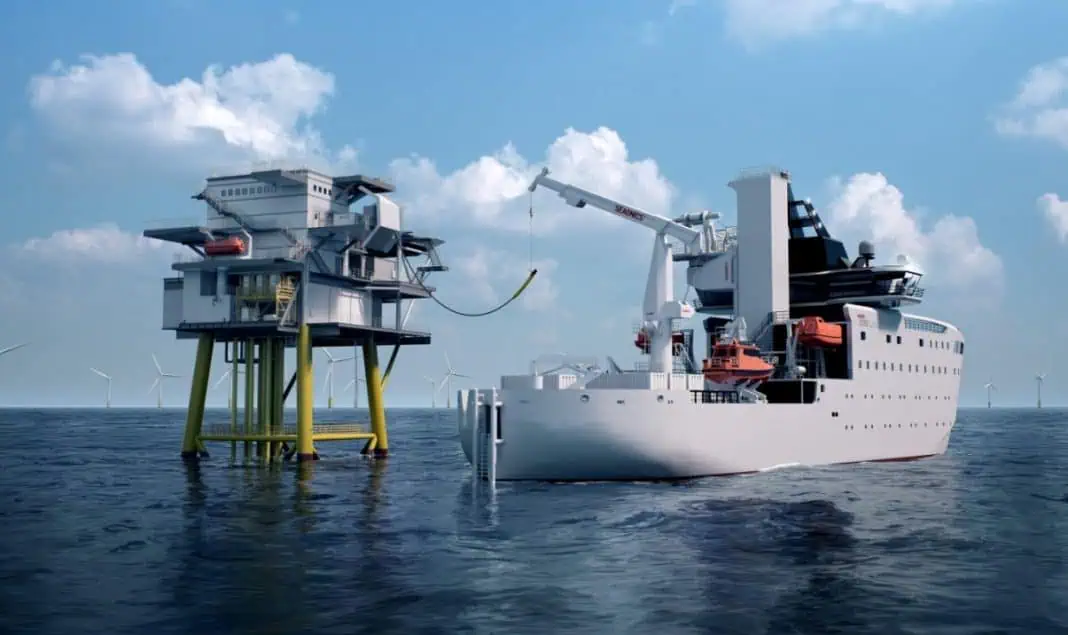Seaonics are proud to inform that the Ocean Charger concept has been awarded the Vessel Charging Innovation of the Year during Electric & Hybrid Marine Awards in Amsterdam.
“We are truly grateful for this award and it motivates us to keep working towards zero-emission vessel operations. It’s a confirmation from the industry and the market that our solution plays a key role in the green transition for ship operations,” says Terje Steffensen, Senior Concept Designer in Seaonics.
Earlier this year, Seaonics was honored with the Innovation of the Year award for the ECMC Crane. The crane stands out for being fully electric, which leads to more efficient and environmentally friendly handling in offshore wind operations.
Leading the way in the green maritime transition
The Ocean Charger Concept was officially launched in February this year with a gathering of all involved partners in Ålesund, Norway, planning ahead for research to testing, validation, and commercialization of new technological solutions for energy transfer to battery-powered ships offshore.
The work will be performed over three years. Vard Design will lead the work together with Seaonics and Vard Electro, partners Rem Offshore, Solstad Offshore, SINTEF Energi, SINTEF Ocean, DigiCat, Sustainable Energy, Equinor, Source Galileo Norge, Corvus Energy, Plug, Shoreline, Sustainable Energy, University of Bergen, Norce and Maritime CleanTech.
The Green Platform Initiative
In December 2022, the Ocean Charger Concept was awarded 38 million NOK through the Norwegian Government’s support scheme The Green Platform Initiative. The Norwegian Minister of Trade, Industry and Fisheries, Jan Christian Vestre, launched the new project at a press conference in Oslo: “We are carrying out the largest restructuring of the Norwegian economy ever. Everything will become greener. It is private companies that must lead the way in this transformation, with the public sector as a supporter,” Vestre said.
In the coming years, a substantial new maritime infrastructure will be developed and built for the offshore wind industry in Norway. Based on the development for other segments, batteries have proven to be the most mature technology for zero or low-emission vessels. This technology constitutes the basis for developing the Ocean Charger project.
By connecting vessels to the power grid in the wind farm and charging batteries regularly, the operational availability of emission-free vessel operations will be secured. The aim is to power operations at the field without using any additional energy sources.












